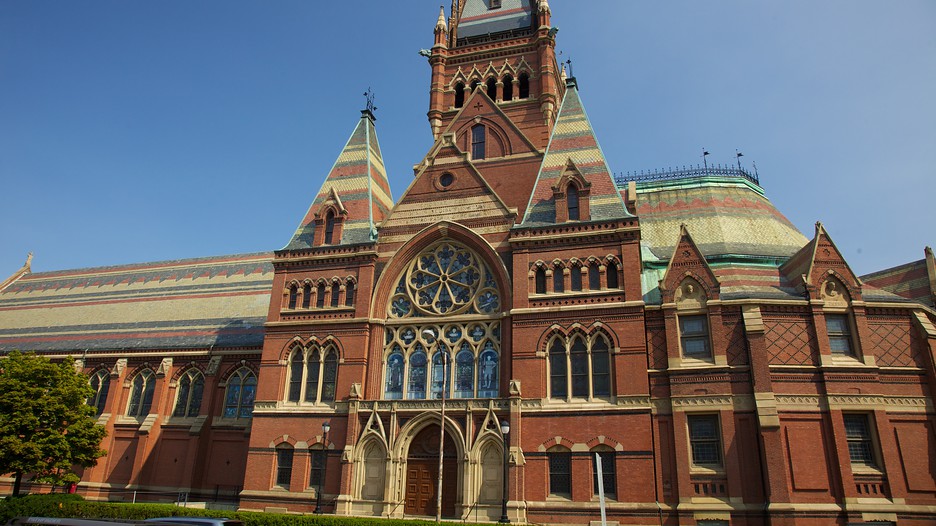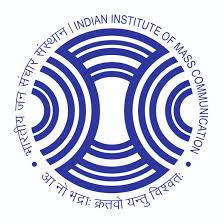Indian Institute of Mass Communication

The Indian Institute of Mass Communication (IIMC), established in 1965, is a premier institution located in New Delhi, dedicated to the study and practice of mass communication and journalism. Over the decades, IIMC has played a significant role in shaping the media landscape in India by providing high-quality education and training to aspiring journalists, media professionals, and communication experts.
Overview
IIMC was established as an autonomous organization under the Ministry of Information and Broadcasting, Government of India. The institute’s primary objective is to provide professional training in various fields of mass communication, including journalism, advertising, public relations, and television production. It is recognized for its commitment to fostering ethical and responsible journalism while promoting research and innovation in the media domain.
Academic Programs
IIMC offers a range of postgraduate diploma programs, each tailored to address specific aspects of mass communication. The curriculum is designed to blend theoretical knowledge with practical skills, enabling students to thrive in the competitive media environment. Below is a detailed overview of the programs offered at IIMC.
1. Postgraduate Diploma in Journalism (English/Hindi)
This program is designed for students aspiring to become professional journalists. It covers various aspects of journalism, including news reporting, editing, investigative journalism, and media ethics.
Key Subjects:
- News Writing and Reporting
- Editing and Design
- Media Laws and Ethics
- Investigative Journalism
- Digital Journalism
- Broadcast Journalism
The curriculum includes practical training, workshops, and internships to equip students with the necessary skills to excel in print, digital, and broadcast journalism.
2. Postgraduate Diploma in Advertising and Public Relations
This program focuses on the strategic communication aspects of advertising and public relations. It prepares students to work in creative and managerial roles within the advertising and PR industries.
Key Subjects:
- Advertising Management
- Public Relations Strategies
- Media Planning and Buying
- Digital Marketing
- Brand Management
- Crisis Communication
Students engage in practical projects and case studies, enabling them to develop effective communication strategies for diverse clients.
3. Postgraduate Diploma in Radio and Television Journalism
This specialized program emphasizes the unique aspects of radio and television journalism. Students learn the art of storytelling through audio and visual media.
Key Subjects:
- Radio Production Techniques
- Television Production and Direction
- Scriptwriting for Radio and TV
- News Reporting for Broadcast
- Media Ethics in Broadcast Journalism
- Audience Research
The program includes hands-on training in production studios and fieldwork, allowing students to gain practical experience in radio and television journalism.
4. Postgraduate Diploma in Development Journalism
Focusing on the role of journalism in social development, this program prepares students to cover issues related to rural development, social justice, and community empowerment.
Key Subjects:
- Development Communication
- Reporting on Social Issues
- Participatory Journalism
- Media for Development
- Research Methods in Development Journalism
- Policy Advocacy and Media
Students engage with communities and conduct fieldwork to understand the challenges faced by marginalized groups, enhancing their ability to report on development issues effectively.
Infrastructure and Facilities
IIMC boasts modern infrastructure and facilities designed to support a comprehensive learning experience. The campus is equipped with state-of-the-art amenities, including:
- Classrooms: Spacious and well-equipped classrooms with audio-visual facilities for interactive learning.
- Media Labs: Equipped with the latest technology for print, radio, and television production, allowing students to gain practical skills.
- Library: A well-stocked library with a vast collection of books, journals, and digital resources related to mass communication, media studies, and journalism.
- Studios: Dedicated radio and television studios for hands-on training in production, broadcasting, and journalism.
- Auditorium: A large auditorium for hosting seminars, workshops, and guest lectures by industry professionals.
Faculty
The faculty at IIMC comprises experienced professionals and academics with diverse backgrounds in journalism, mass communication, and media studies. Many faculty members have significant industry experience, enabling them to provide valuable insights and mentorship to students.
| Faculty Qualification | Expertise |
|---|---|
| PhD Holders | Specializations in media studies, communication theory, and journalism. |
| Industry Practitioners | Professionals with extensive experience in journalism, advertising, and public relations. |
| Research Scholars | Engaged in research projects that enhance the academic environment. |
The faculty’s diverse expertise fosters a rich learning environment, encouraging students to explore new ideas and develop critical thinking skills.
Admissions Process
The admissions process at IIMC is competitive, ensuring that only the most qualified candidates are selected for its esteemed programs. Here’s an overview of the admission criteria and process:
Eligibility Criteria
- Postgraduate Diploma Programs: Candidates must hold a bachelor’s degree in any discipline from a recognized university. There is no specific requirement for prior experience in journalism or mass communication.
Entrance Exam
Candidates seeking admission to IIMC must qualify for the entrance exam conducted by the institute. The exam typically includes:
- Written Test: Assessing candidates’ knowledge of current affairs, general knowledge, and aptitude for journalism.
- Interview: Shortlisted candidates may be invited for a personal interview to assess their motivation, communication skills, and suitability for the program.
Fees Structure
The fee structure at IIMC is designed to be affordable while maintaining high-quality education. The approximate fee for the postgraduate diploma programs is as follows:
| Program | Annual Tuition Fee (Approx.) |
|---|---|
| Postgraduate Diploma in Journalism | INR 1 lakh to 1.5 lakhs |
| Postgraduate Diploma in Advertising and PR | INR 1 lakh to 1.5 lakhs |
| Postgraduate Diploma in Radio and TV | INR 1 lakh to 1.5 lakhs |
| Postgraduate Diploma in Development Journalism | INR 1 lakh to 1.5 lakhs |
Additional costs may include materials, travel for fieldwork, and other miscellaneous expenses.
Placements and Career Opportunities
IIMC has a dedicated placement cell that facilitates internships and job placements for students. The cell collaborates with various media organizations, advertising agencies, and corporate firms to connect students with potential employers.
Career Support Activities:
- Internships: Students are encouraged to undertake internships with leading media organizations to gain real-world experience.
- Workshops: Regular workshops and seminars conducted by industry experts enhance students’ skills and knowledge.
- Resume Building: Assistance with resume writing, interview preparation, and career counseling helps students prepare for the job market.
Alumni Network
IIMC has a strong and active alumni network, comprising successful professionals across various fields of mass communication, including journalism, advertising, public relations, and digital media. The alumni often engage with the institution, providing mentorship, networking opportunities, and guest lectures for current students.
Research and Publications
IIMC is committed to promoting research in mass communication and journalism. The institute encourages faculty and students to engage in research projects and publish their findings in academic journals and conferences. The following initiatives reflect IIMC’s focus on research:
- Research Projects: Faculty members and students undertake research projects that address contemporary issues in media and communication.
- Publications: IIMC publishes journals and newsletters to disseminate research findings and share insights into current trends in mass communication.
- Conferences and Seminars: The institute organizes conferences and seminars that bring together scholars, practitioners, and students to discuss relevant topics in mass communication.
Collaboration and Industry Partnerships
IIMC actively collaborates with various media organizations, academic institutions, and industry experts to enhance its academic programs and provide students with valuable exposure to the industry. Key collaborations include:
- Media Organizations: Partnerships with leading newspapers, television channels, and digital media platforms for internships, workshops, and guest lectures.
- Academic Collaborations: Collaborations with universities and research institutions for joint research projects and exchange programs.
- Industry Workshops: Regular workshops conducted by industry professionals to provide students with insights into the latest trends and practices in media and communication.
Social Responsibility
IIMC emphasizes the importance of social responsibility and ethical journalism in its curriculum. The institute encourages students to engage with communities and understand the role of media in social development. Initiatives include:
- Community Engagement: Students participate in community-based projects to understand social issues and contribute to development efforts.
- Ethical Journalism: The curriculum includes a strong focus on media ethics, emphasizing the responsibility of journalists to report truthfully and sensitively.
Conclusion
The Indian Institute of Mass Communication (IIMC) stands as a beacon of excellence in journalism and mass communication education in India. With its comprehensive academic programs, experienced faculty, modern infrastructure, and commitment to ethical journalism, IIMC prepares students to become competent and responsible media professionals.
By fostering a culture of innovation, research, and social responsibility, IIMC not only equips students with the necessary skills to thrive in the media landscape but also instills in them a sense of duty towards society. The institute’s strong alumni network, industry collaborations, and focus on practical training further enhance the educational experience, making IIMC a premier choice for aspiring journalists and communication experts.
In a rapidly evolving media environment, IIMC continues to adapt its programs to meet the changing needs of the industry, ensuring that its graduates are well-prepared to face the challenges of the future. As it moves forward, IIMC remains committed to its mission of excellence in education, research, and public service, contributing significantly to the development of mass communication in India.
The Indian Institute of Mass Communication (IIMC) is located at:
Indian Institute of Mass Communication
Aruna Asaf Ali Marg,
JNU New Campus,
New Delhi – 110067,
India.
For more information, you can visit their official website or contact their administration office.
Courses/Programs
| Serial# | Title | Estimated Cost | Program type |
|---|
